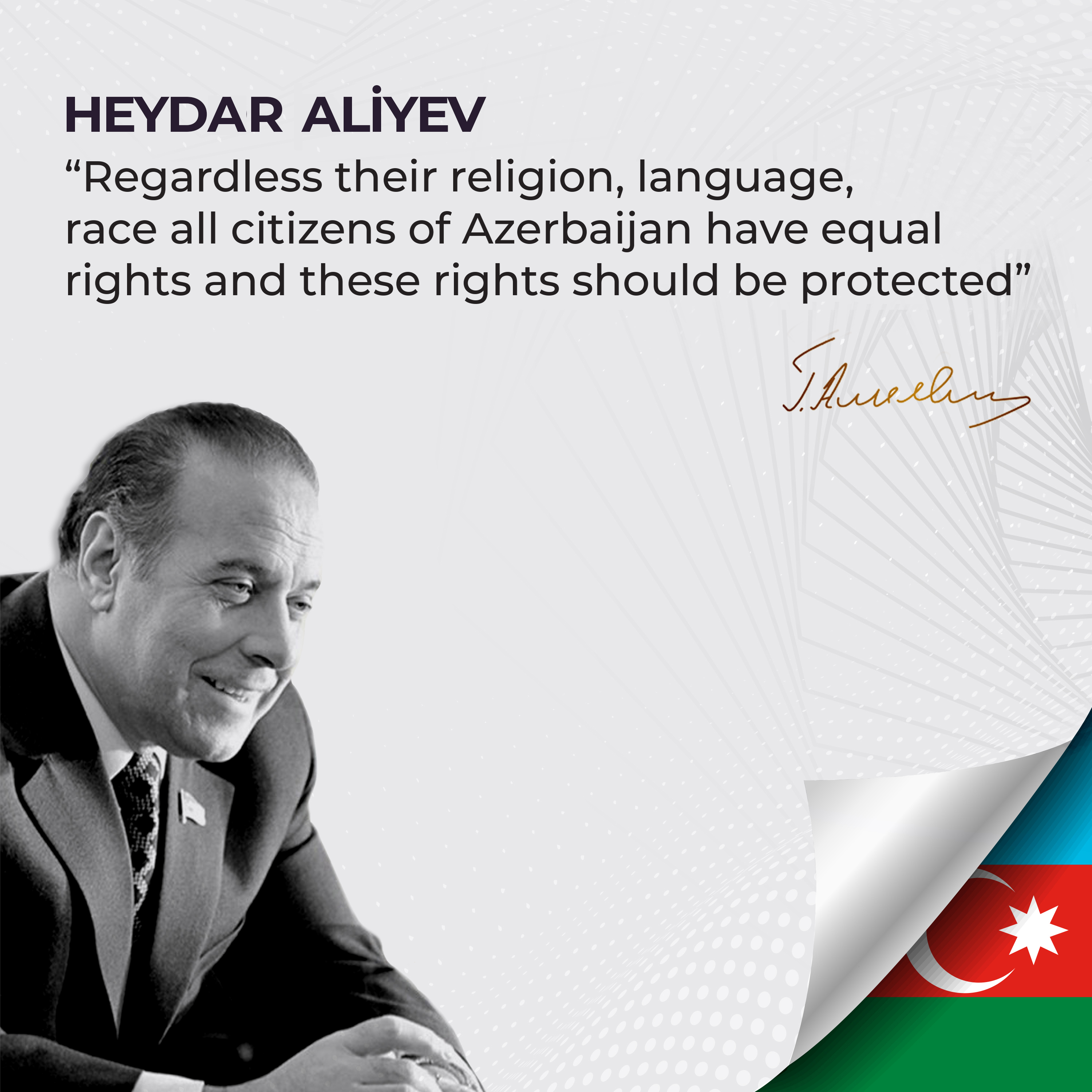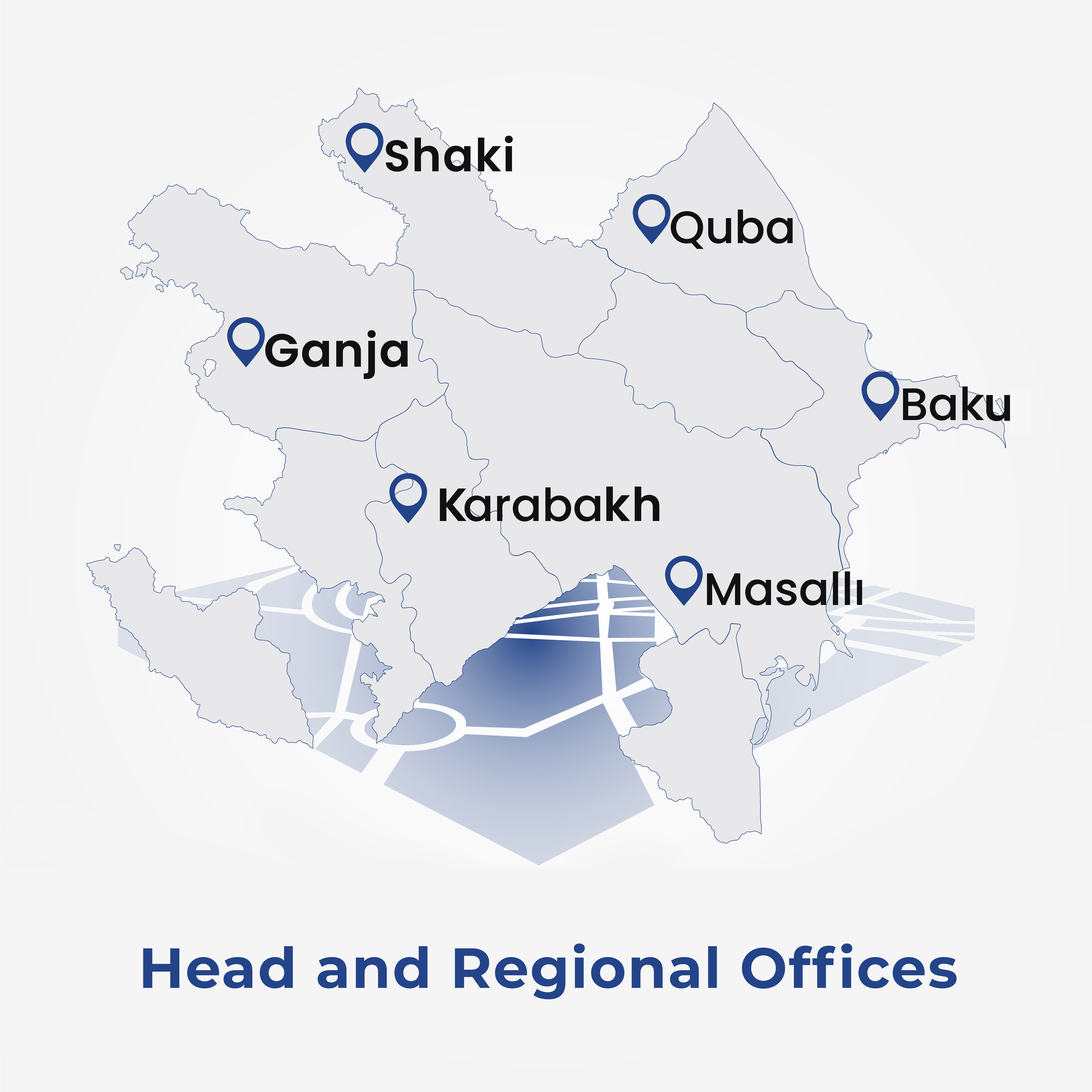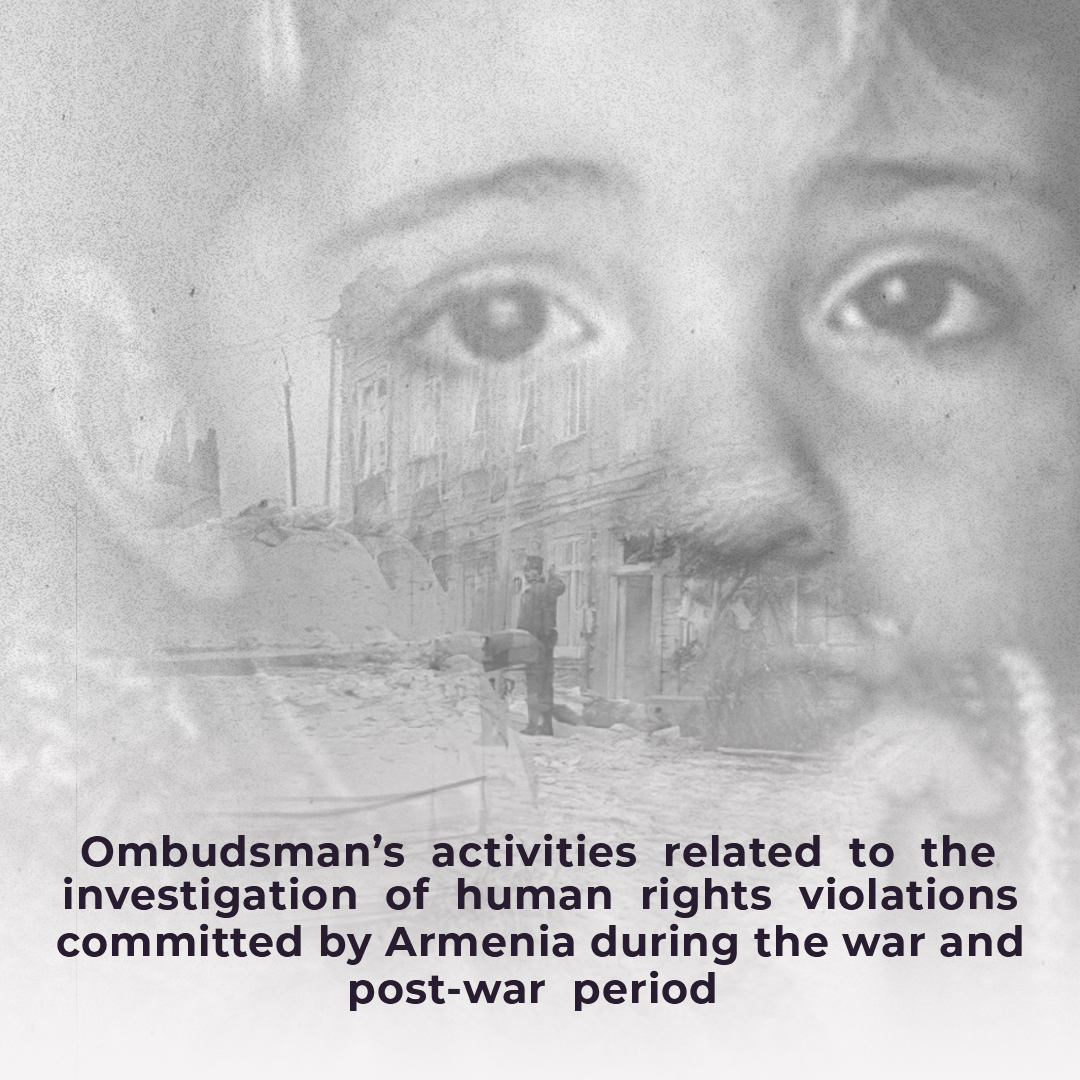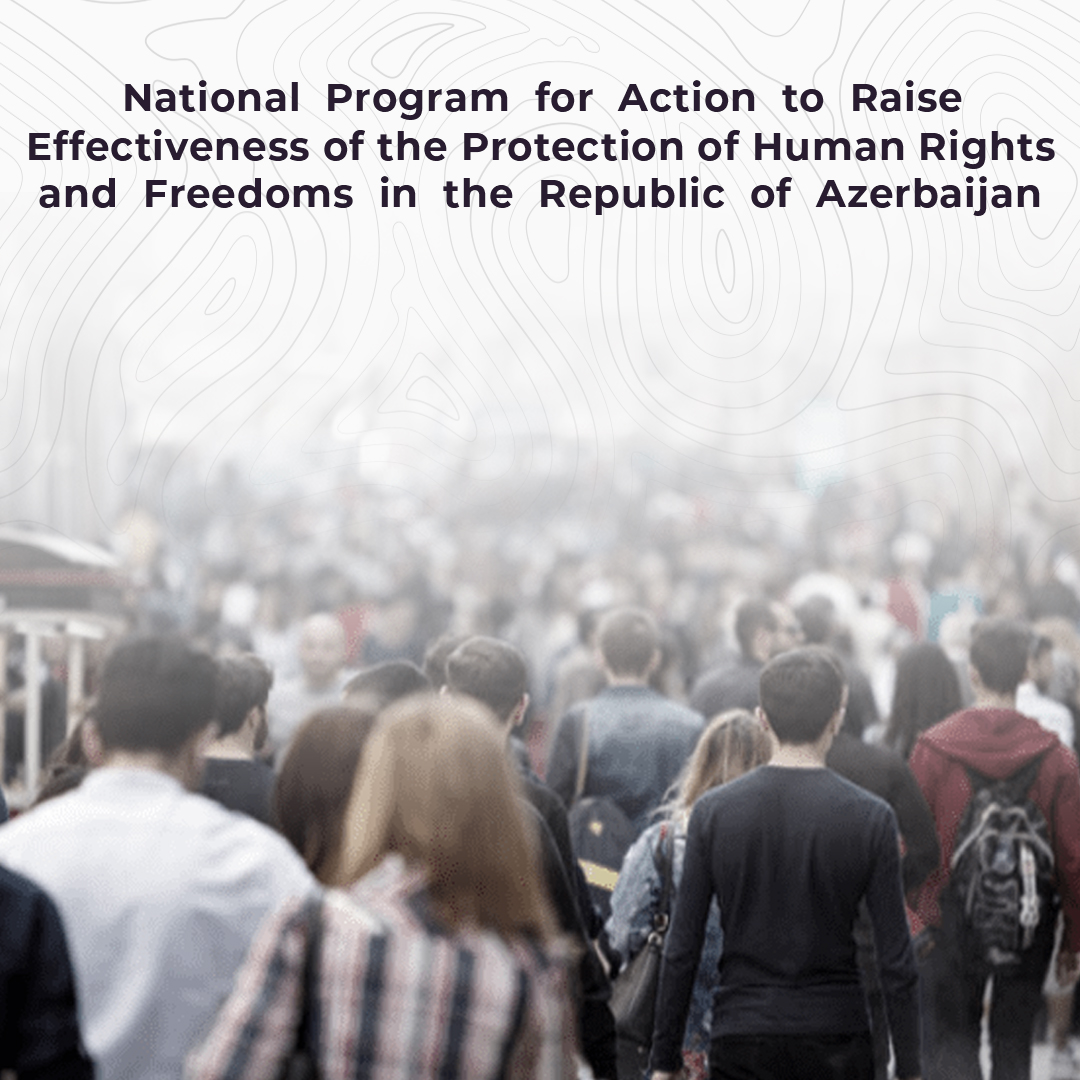
The Appeal of the Commissioner for Human Rights (Ombudsman) of the Republic of Azerbaijan to International Human Rights Organizations concerning War Crimes and Ecocide Committed by Armenia against Azerbaijan
25-01-2023
573 dəfə oxunub
Along with unfounded territorial claims against Azerbaijan, Armenia has carried out a policy of occupation, ethnic cleansing, genocide, and terrorism in the context of acute national, racial, and religious hatred. As a bitter result of this, more than 20 percent of the territories of Azerbaijan were occupied by Armenia for a period of nearly 30 years, and nearly one million of our compatriots were forced out of their native homelands and became refugees and internally displaced persons. In addition to military personnel, many civilians were also mercilessly killed or severely injured, which resulted in disability, as well as captured, disappeared, or taken hostage.
During the first Karabakh war, a total of 3,890 citizens of Azerbaijan, including 3,171 soldiers, and 719 civilians went missing. 71 of them were minors, 267 were women, and 326 were elderly people. Azerbaijanis, who were captured and taken hostage by Armenia, were brutally tortured and killed, and then their remains were buried en masse in an inhuman manner.
Although numerous appeals have been made by the relevant state bodies of Azerbaijan to Armenia, as well as to international organizations, today the Armenian side avoids providing information about the whereabouts of the missing persons under unjustified pretexts, and refuses to provide maps of mass gravesites of the captured and hostage Azerbaijanis, whom they killed by subjecting them to various severe tortures and burying them in inhumane conditions.
As it can be seen, our compatriots, who have become refugees and IDPs as a result of Armenia's armed aggression against Azerbaijan, as well as those who have been captured, went missing, and taken hostage, were severely and massively deprived of their fundamental human rights, including the right to life, freedom and free movement, property, safe living, to live in a healthy environment, health protection, protection of honor and dignity established in international treaties and national legislation.
Armenia, which has occupied the internationally recognized territories of Azerbaijan for nearly 30 years, has razed to the ground many socio-economic infrastructure facilities, residential and non-residential buildings, of vital importance for the life in Karabakh and the surrounding districts, which are an integral part of our country, and has even completely destroyed historical-cultural and religious monuments, including cemeteries in violation of universally accepted principles and norms of international law.
During the occupation of Armenia, natural resources in the territories of Azerbaijan were deeply looted, thus, 163 mineral deposits, including gold, mercury, copper, lead, zinc, coal etc., as well as forest cover and rare trees were illegally exploited.
The fact that the transboundary river Okchuchay has been exposed to severe pollution in the territory of Armenia for many years has an obvious negative impact on the quality of water resources in the Araz River, the second largest river in the South Caucasus, which, in its turn, has extremely dangerous consequences for life and health.
Armenia, which still does not give up the actions that threaten the safety of humanity, continues to cause serious damage to nature, biological diversity, flora and fauna, water sources, and the ecosystem of the region as a whole.
The fact that the technically and morally outdated "Metsamor" Nuclear Power Plant (NPP) is still operating in Armenia is a source of serious danger not only for Azerbaijan and Armenia, but also for the entire region. This means that every country in the region faces the risk of experiencing the fate of Chernobyl and Japan’s Fukushima nuclear power plants. Despite the warnings of various international organizations and experts in the atomic field that the expired "Metsamor" Nuclear Power Plant is “a threat to the entire region", Armenia not only fails to stop the operation of the plant, but vice versa, its operation has been extended until 2026 and beyond.
By the way, in the report of the EU High Representative for Foreign Affairs and Security Policy (EU Commission) on partnership implementation in Armenia dated May 17, 2022, it was also noted that “the nuclear power plant in Metsamor cannot be upgraded to fully meet internationally accepted nuclear safety standards, and therefore requires closure and safe decommissioning.”
After the signing of the tripartite Statement of November 10, 2020 to end the hostilities between Armenia and Azerbaijan, ensuring sustainable peace that serves the normalization and development of interstate relations in the South Caucasus in accordance with new realities, the complete elimination of the long-lasting conflict in the region, new opportunities have emerged for the restoration of economic and transport relations.
To ensure the safe return of our compatriots who have longed to return to their homeland for many years, Azerbaijan is currently carrying out measures to clear mines and other explosive devices from the territories liberated from occupation, continuing reconstruction and construction works. All these efforts are aimed at the complete solution of the issues dealing with IDPs by achieving sustainable development in those areas. However, unfortunately, Armenia's disruptive and provocative activities, especially the existing mine problem, continue to be an important threat to the provision of sustainable and just peace in the region, to people's lives and health, and the rights of our peaceful residents are still being violated.
Either during the occupation or the war, or after the liberation of our lands, the facts of the deaths of many civilians, along with military personnel, who became victims of mine terrorism as a result of the explosion of numerous anti-personnel and anti-tank mines buried by the Armenian armed forces in our territories, and thereby a gross violation of their fundamental human rights clearly confirm this. Thus, from November 10, 2020 until now, as a result of hitting by landmines in the liberated territories, 10 servicemen and 36 civilians were killed, and 146 servicemen and 88 civilians were injured in various degrees. Thus, as a result of mine explosions from 1991 until now, 3357 people, of whom 38 were women and 357 were children, were killed or injured.
The current landmine problem, which has caused numerous casualties and injuries, is delaying the safe return to our liberated areas and creating a serious obstacle to the ongoing large-scale construction and rehabilitation. Therefore, for the return of our former IDPs, whose rights have been violated for many years, to their ancestral lands, those areas must first be cleared of mines, and the completely destroyed infrastructure must be restored.
Although Azerbaijan has repeatedly requested mine maps from Armenia, no adequate response has been given. The maps of minefields provided by Armenia covered a very small percentage of the total mined areas, and the accuracy and reliability of the information provided in those documents was at a very low level.
Despite providing information in our reports, statements and appeals as the Commissioner for Human Rights (Ombudsman) of the Republic of Azerbaijan addressed to international organizations, ombudsmen of foreign countries and national human rights institutions on the facts about the war and terror crimes committed by Armenia, including the problem of landmines, and justifying the hand-over of accurate maps of unmarked mines to our country, the other side did not react to this issue.
On the contrary, in total violation of the universally accepted principles and norms of international law, including international humanitarian law, Armenia continues to commit mine terrorism and ecocide crimes by contaminating our lands with mines through various sabotage groups, creating a global threat to the environment in the currently liberated territories of Azerbaijan, which were recognized by the UN.
As a result of illegal exploitation and looting of natural resources by Armenia in the territories of Azerbaijan, the environment is seriously damaged. Thus, the serious ecological damage caused by the illegal exploitation of the Kyzylbulag gold and Demirli copper-molybdenum mineral deposits in the territories of the Republic of Azerbaijan, where the Russian peacekeeping contingent is temporarily deployed, proves this once again. Unfortunately, international institutions still keep silence on this issue.
Regarding the groundless allegations mentioned in the recent statement by the Ombudsman of Armenia, we inform you that the peaceful action continued on the Lachin-Khankendi road by representatives of civil society organizations, operating in Azerbaijan and environmental activists, aims to prevent the illegal exploitation and looting of our country's natural resources by Armenia and the serious pollution of the environment caused by those activities.
It should be taken into account that according to the Law dated November 9, 1999 the Republic of Azerbaijan ratified the UN Convention on Access to Information, Public Participation in Decision-Making and Access to Justice in Environmental Matters dated June 25, 1998. This action is also held in accordance with the requirements of the international agreements that our country is a party to, including this Convention.
The Resolution "Situation in the Occupied Territories of Azerbaijan" adopted by the UN General Assembly in 2006, raised the issue of assessing the impact of fires on the occupied territories of Azerbaijan on the ecological security of the region. The resolution adopted by the Parliamentary Assembly of the Council of Europe in 2016 on the deliberate deprivation of water to residents of the border regions of Azerbaijan, calls for immediate withdrawal of the Armenian armed forces from the region and for unimpeded access by independent engineers and hydrologists to inspect and assess the situation on site.
All this confirms that there are serious violations. Moreover, Armenia does not purposefully fulfill its obligations under the 1976 Convention on the Prohibition of Military or Any Hostile Use of Environmental Modification Techniques, the 1989 Basel Convention on the Control of Transboundary Movements of Hazardous Wastes and their Disposal, the 1992 Convention on the Transboundary Effects of Industrial Accidents to which it is party, and other international agreements.
The participants of the action have never created an obstacle for the transportation of humanitarian cargo on the Lachin-Khankendi road and are not creating it now. Dozens of cars move freely in both directions on this road, which is open for humanitarian purposes.
Once again, I invite the Armenian side instead of making biased statements aimed at forming a false opinion against Azerbaijan by spreading fake information about the action and confusing the international community, to stop the war crimes and eco-terrorism committed against Azerbaijan for many years, to clarify the fate of nearly 4,000 Azerbaijanis, who went missing as a result of military aggression against Azerbaijan, to investigate the facts of mass and inhumane burial of captured and taken hostage Azerbaijani citizens by severely torturing and massively burying, to hand over to our country the accurate maps of the mines buried by the Armenian armed forces in our territories, which caused the loss of life or severe injuries of innocent people that resulted in disability.
We believe that international organizations, world states, ombudsman institutions in other countries, and other national human rights institutions should make joint efforts to ensure that the Armenian side complies with the norms and principles of international law, including the requirements of IHL, for the sake of restoration of human rights violated and establishment of the sustainable peace in the region.
Armenia should put an end to the pollution of the transboundary Okchuchay river with toxic substances, the illegal exploitation of the Kyzylbulag gold and Demirli copper-molybdenum mineral deposits in the territories of the Republic of Azerbaijan where the Russian peacekeeping contingent is temporarily deployed, and conditions should be created for the relevant state bodies of Azerbaijan to monitor environmental and other damages in those deposits.
In order to prevent the next disaster similar to Chernobyl and Fukushima, the operation of Metsamor NPP should be urgently stopped safely and radioactive waste should be disposed under strict international control in accordance with the Joint Convention on the Safety of Spent Fuel Management and on the Safety of Radioactive Waste Management of the International Atomic Energy Agency, as well as with the requirements set by PACE Resolution No. 1588 (2007).
Unpleasant events that lead to the formation of an intolerant atmosphere against Azerbaijanis in Armenia and beyond its borders, which hinder the provision of sustainable peace between the parties, and at the same time, the use of hateful and spiteful expressions by people of Armenian origin in public speeches, and on social media that promote enmity should be strongly condemned. In accordance with the 1961 Vienna Convention "On Diplomatic Relations" adopted by the UN, and the 1973 Convention on the Prevention and Punishment of Crimes against Internationally Protected Persons, including Diplomatic Agents”, legal measures should be taken regarding the attacks on the diplomatic missions of the Republic of Azerbaijan.
By once again exposing Armenia's crimes against peace and humanity, as well as war crimes and terrorism, the undeniable facts about such human rights violations, reflected in the previous as well as in our current appeals, make it necessary to take steps to establish international legal responsibility against this state.
We hope that the fair position, human rights-based approach of international organizations will help to ensure stability, security and economic development in the South Caucasus.
Sabina Aliyeva
The Commissioner for Human Rights (Ombudsman)
of the Republic of Azerbaijan
25 January 2023
The statement is addressed to the UN Secretary-General, UN Security Council, UN Office of High Commissioner for Human Rights, UN Office of High Commissioner for Refugees, UN Human Rights Council, the United Nations Children’s Fund, the United Nations Educational, Scientific and Cultural Organization, European Union, Council of Europe, Organization for Security and Co-operation in Europe, International and European Ombudsman Institutions, Asian Ombudsman Association, Organization of Islamic Cooperation and the Ombudsman Association of its member states, Independent Permanent Human Rights Commission of the Organization of Islamic Cooperation, European Network of Ombudspersons for Children, International Peace Bureau, foreign ombudsmen and national human rights institutions, embassies of the Republic of Azerbaijan and the foreign embassies in Azerbaijan, as well as to the Azerbaijani Diasporas
- .
-

- The Ombudsman participated in the International Conference on “Artificial Intelligence and Human Rights: Opportunities, Risks and Visions for a Better Future” in Qatar.
-

- The Ombudsman sent letter to UN High Commissioner for Refugees regarding protection of rights of persons deported from Armenia.
-

- A representative of the Ombudsman Office took part in an event organized by the Ministry of Energy.
-

- The Ombudsman’s representatives participated in the Pardon Decree Enforcement Ceremony.
-

- A series of legal awareness events were organized by the Ombudsman's Regional Centers.
-




